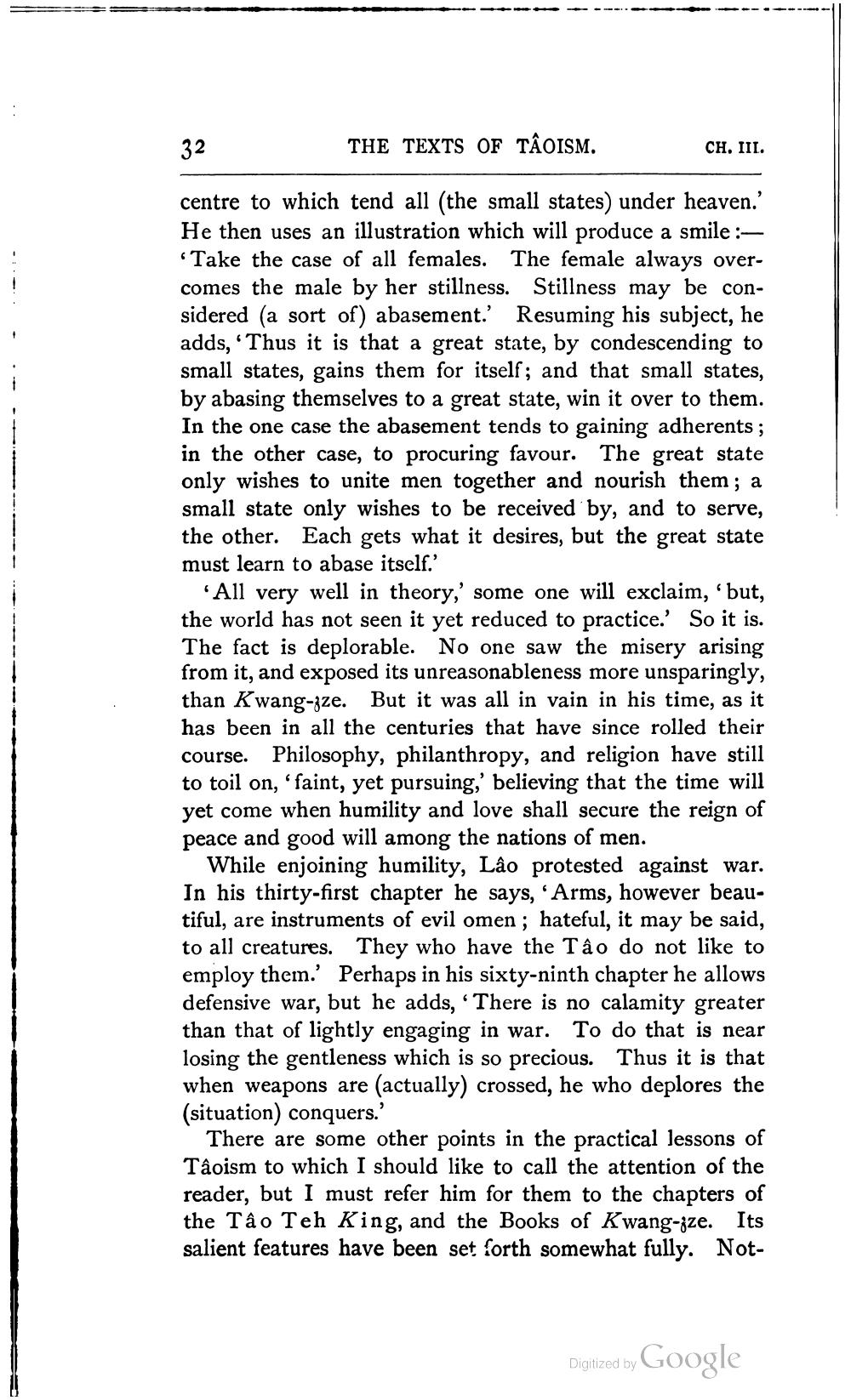________________
THE TEXTS OF TÂOISM.
CH. III.
centre to which tend all (the small states) under heaven.' He then uses an illustration which will produce a smile :“Take the case of all females. The female always overcomes the male by her stillness. Stillness may be considered (a sort of) abasement.' Resuming his subject, he adds, 'Thus it is that a great state, by condescending to small states, gains them for itself; and that small states, by abasing themselves to a great state, win it over to them. In the one case the abasement tends to gaining adherents; in the other case, to procuring favour. The great state only wishes to unite men together and nourish them; a small state only wishes to be received by, and to serve, the other. Each gets what it desires, but the great state must learn to abase itself.'
*All very well in theory,' some one will exclaim, 'but, the world has not seen it yet reduced to practice.' So it is. The fact is deplorable. No one saw the misery arising from it, and exposed its unreasonableness more unsparingly, than Kwang-zze. But it was all in vain in his time, as it has been in all the centuries that have since rolled their course. Philosophy, philanthropy, and religion have still to toil on, 'faint, yet pursuing,' believing that the time will yet come when humility and love shall secure the reign of peace and good will among the nations of men.
While enjoining humility, Lâo protested against war. In his thirty-first chapter he says, 'Arms, however beautiful, are instruments of evil omen; hateful, it may be said, to all creatures. They who have the Tâo do not like to employ them.' Perhaps in his sixty-ninth chapter he allows defensive war, but he adds, 'There is no calamity greater than that of lightly engaging in war. To do that is near losing the gentleness which is so precious. Thus it is that when weapons are (actually) crossed, he who deplores the (situation) conquers.'
There are some other points in the practical lessons of Taoism to which I should like to call the attention of the reader, but I must refer him for them to the chapters of the Tâo Teh King, and the Books of Kwang-zze. Its salient features have been set forth somewhat fully. Not
Digitized by Google




